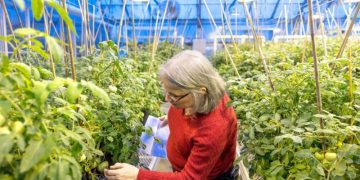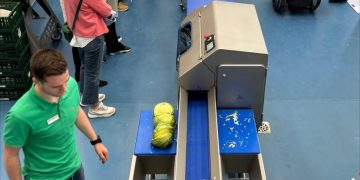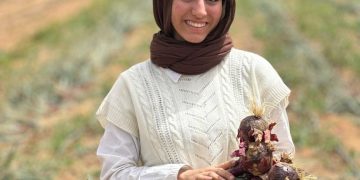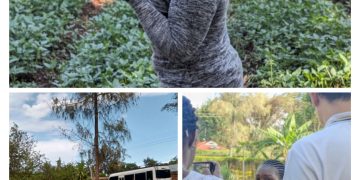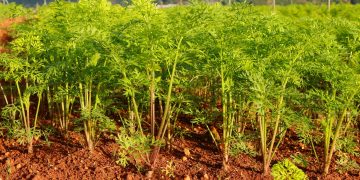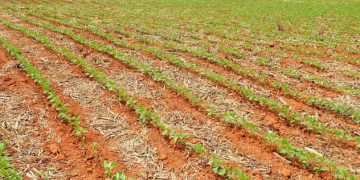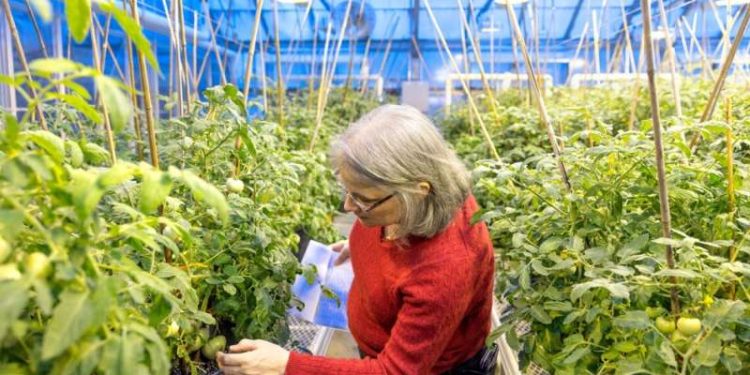Mae ymchwilydd Cornell wedi cwblhau rhaglen ddegawdau o hyd i ddatblygu mathau newydd o domatos sy'n gwrthsefyll plâu yn naturiol ac yn cyfyngu ar drosglwyddo clefydau firaol gan bryfed.
Yn ddiweddar, adneuodd Martha Mutschler-Chu, bridiwr planhigion a genetegydd sy'n arwain y rhaglen, set gychwynnol o linellau ymchwil tomato sy'n gwrthsefyll pryfed yn system germplasm Adran Amaethyddiaeth yr Unol Daleithiau a'r Ganolfan Adnoddau Geneteg Tomato ym Mhrifysgol California-Davis, a fydd yn bod ar gael i unrhyw un gael mynediad i'r planhigion ar gyfer ymchwil.
Y gwanwyn hwn, bydd Mutschler-Chu yn cwblhau datblygiad set newydd o 20 llinell elitaidd, a fydd wedyn ar gael i unrhyw gwmni hadau â diddordeb, a all fridio'r nodweddion sy'n gwrthsefyll pla yn fathau masnachol. Gallai magu mathau newydd gymryd hyd at bum mlynedd cyn iddynt ddechrau gwerthu mathau newydd sy'n gwrthsefyll pryfed.
Ar gyfer tyfwyr, bydd y manteision hyn yn cynnig llai o golledion cnydau a difrod ffrwythau, tra hefyd yn dileu neu'n lleihau'r defnydd o blaladdwyr a diogelu'r amgylchedd.
Addaswyd ymwrthedd i blâu yn y tomatos hyn o domato gwyllt brodorol i Beriw, Solanum pennellii. Ychydig o flew sydd gan y tomato Andes o'r enw trichomes sy'n ysgarthu defnynnau o gyfansoddion siwgr, a elwir yn acylsugars, sy'n gwrthyrru pryfed. Yn y modd hwn, mae'r planhigion yn ddiogel ac yn naturiol yn atal amrywiaeth eang o bryfed, gan eu hatal rhag bwydo, bwyta dail a throsglwyddo firysau, neu ddodwy wyau, lle gallai larfa niweidio planhigion.
“Mae’r llinellau newydd yn cyfuno planhigion a ffrwythau o ansawdd gwell â lefelau acylsugars uchel, mae angen i gwmnïau hadau cyfuniad drosglwyddo’r nodwedd acylsugar i fathau masnachol,” meddai Mutschler-Chu, athro emeritws yn Adran Gwyddor Planhigion Integreiddiol, Bridio Planhigion a Geneteg. , rhan o'r Coleg Amaethyddiaeth a Gwyddorau Bywyd.
Mewn profion maes a labordy o'r llinellau ymchwil cychwynnol, mae gwyddonwyr planhigion o Cornell a saith partner prifysgol arall (Prifysgol Talaith Gogledd Carolina; Prifysgol Georgia, Prifysgol Clemson; Prifysgol Florida; Prifysgol California, Davis; Prifysgol California, Glan-yr-afon; a Canfu Prifysgol Tech Tennessee) fod y lefelau a'r ffurf gywir o acylsugars yn rheoli rhediadau blodau gorllewinol sy'n lledaenu gwywo mannog. firws, a phryfed gwynion tatws melys, sy'n trosglwyddo firws cyrl dail melyn. O ganlyniad, cafodd llawer llai o blanhigion eu heintio â’r clefydau dinistriol hyn ac, yn treialon maes, digwyddodd yr heintiau hynny yn hwyr yn y tymor.
“Ar gyfer y rheolaeth firws orau, rwyf wedi awgrymu bod cwmnïau hadau yn defnyddio dull haen ddeuol: creu hybridau gyda’r nodwedd acylsugar a genynnau ymwrthedd firws safonol,” meddai Mutschler-Chu. Os yw pryfed yn llwyddo i heintio planhigyn â firws er gwaethaf yr acylsugars, mae genynnau sy'n gwrthsefyll firws yn darparu amddiffyniad ychwanegol.
“Mae'n system a fydd yn amddiffyn cyfleustodau genynnau ymwrthedd firws oherwydd os bydd llai o firws yn mynd i mewn i blanhigyn, mae'r tebygolrwydd y bydd gan y firws dreiglad ar hap sy'n cynhyrchu straen sy'n goresgyn yr ymwrthedd hefyd yn lleihau,” meddai Mutschler-Chu. Yn yr un modd, gan nad yw acylsugars yn wenwynig ac nad ydynt yn lladd pryfed, mae llai o bwysau dethol i bryfed eu hunain ddod yn oddefgar, felly maent yn addasu'n arafach i'r ymlidydd.
Mae'r llinellau elitaidd newydd, a fydd ar gael yn fuan i gwmnïau hadau, wedi cael y rhan fwyaf o'r genynnau gwyllt o S. pennellii sy'n hyrwyddo nodweddion agronomeg annymunol wedi'u tynnu o'u genomau. Cadwodd Mutschler-Chu genynnau acylsugar critigol wrth gael gwared ar lawer o enynnau gwyllt eraill a achosodd nodweddion negyddol fel canghennau gormodol, ffrwythau bach a blas nad yw'n ei fwyta. Er bod llinellau ymchwil cychwynnol yn cynnwys tua 12% o DNA S. pennellii gwyllt, mae'r llinellau mwyaf newydd i lawr i tua 2.5% DNA gwyllt.
Yn ehangach, mae'r gwaith yn ymarferol yn dangos proses ar gyfer ymgorffori nodwedd werthfawr, yn seiliedig ar gyfansoddyn naturiol diogel, a reolir gan enynnau niferus, ac sy'n effeithiol yn erbyn firysau a phlâu lluosog, strategaeth a allai fod o fudd i gnydau eraill hefyd, meddai Mutschler-Chu.
Er y bydd y llinellau elitaidd yn cael eu rhyddhau'n anghyfyngedig i unrhyw gwmni hadau fridio nodweddion i'w mathau masnachol, bydd angen iddynt wneud cais am drwydded gyda Chanolfan Trwyddedu Technoleg Cornell cyn y gallant werthu hadau.
